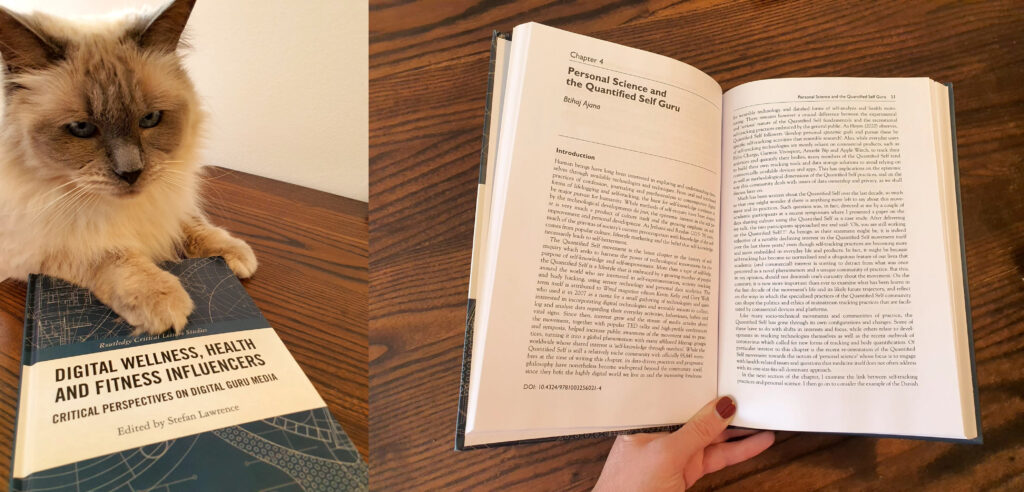
DDH professor, Btihaj Ajana, recently published a new chapter, “Personal Science and the Quantified Self Guru”, in book, Digital Wellness, Health and Fitness Influencers, edited by Stefan Lawrence.
Author’s summary of the chapter:
“In this chapter, I examine the ways in which Quantified Self practices can be considered as “personal science,” a term first introduced by Martin and Brouwer in early 1990s and recently adopted by the Quantified Self community to describe its self-tracking activities and objectives. In doing so, I revisit some relevant arguments put forward by the philosopher, Hans-Georg Gadamer, vis-à-vis the value of the personal and hermeneutic dimension to understanding aspects of health and appreciating the limits of traditional medical methods and their generalising approach. After laying down the basis of the Quantified Self as personal science, the chapter proceeds to examine the example of the Danish self-tracker, Thomas Blomseth Christiansen, who is famous for curing himself of his severe allergies thanks to tracking his sneezes since 2011 and monitoring various other bodily and environmental variables. By drawing on interviews I conducted with Thomas and weaving them into relevant philosophical debates, I provide a critical discussion on the way self-tracking can be seen, at once, as a way of reclaiming autonomy and control over one’s health as well as a form of outsourcing decision-making to technology itself. This discussion leads me to differentiate between active and passive self-tracking, and between members of the Quantified Self circle who build their own tools and the general users who rely on the commercial tech solutions available on the market. Ultimately, I suggest that the Quantified Self community can act as a “guru” for mainstream self-trackers by nurturing a critical and inclusive approach to technological development and use, which can enable users to be involved in the means of production and become experts rather than just users. “
